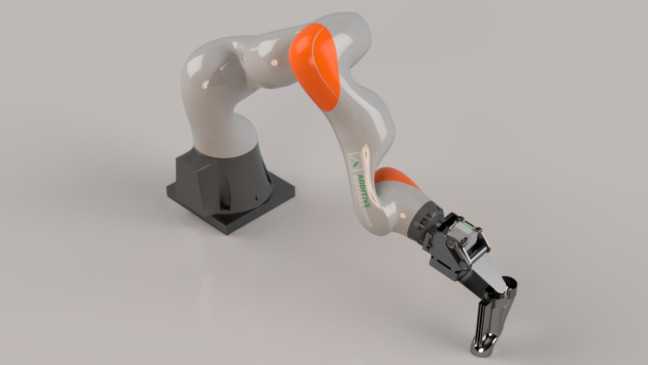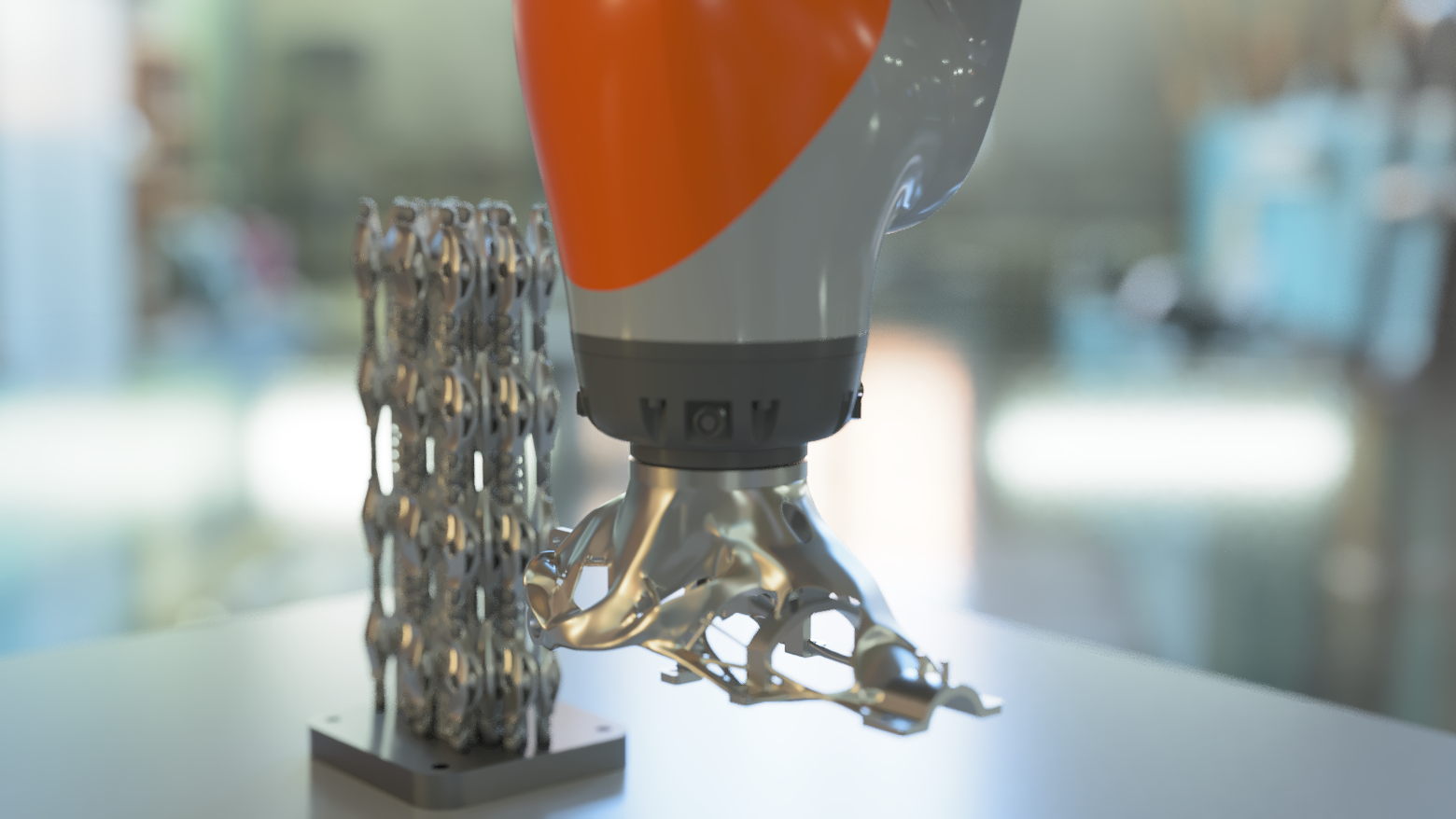Engineering firm Renishaw has partnered with 3D printing robotics specialist Additive Automations to advance automated post-processing technology for metal 3D printed parts. The partnership will involve using collaborative robots (cobots), together with deep learning algorithms, to automatically detect and remove support structures in their entirety. The duo expects the project to reduce average part costs by up to 25%, making additive manufacturing a more feasible and cost-effective high volume production method.
Bryan Austin, Director of AM Sales at Renishaw, states: “Improvements in post-processing could bring AM to the forefront of new applications in medical and aerospace applications. An automated manufacturing process could make AM adoption more appealing to manufacturers operating large volume production lines.”

The SALSA project
As in the name, Additive Automations creates robotics systems designed to automate certain processes in the additive manufacturing workflow. The Sheffield-based start up started collaborating with Renishaw in August 2019, following a round of successful funding from UK and Canadian bodies. Since then, Renishaw has been aiding in the company’s growth with its technical and business expertise.
The new project, Separation of Additive-Layer Supports by Automation (SALSA), will use precision robotics and deep learning algorithms to digitize one of the last highly manual processes in 3D printing – support removal. Before the project was commenced, Renishaw supplied Additive Automations with four distinct 3D printed builds so it could demonstrate the current state of its support removal technology. The four parts were designed for medical, oil & gas, automotive, and engineering tooling applications.
Once the efficacy and potential of the support removal system was demonstrated, the partners decided on Additive Automations’ cobots to further advance the technology. They were chosen for their high payload-to-size ratio and in-situ force sensors, which allow the cobots to collect real time geometry data about the 3D printed parts. By the end of the SALSA project, Renishaw and Additive Automations will be able to feed the part data into a purpose-built software program to generate a digital twin. Based on calculations on the digital twin, the cobots will then be able to determine exactly where the supports are, so they can be removed using an attachable end-effector tool.
Robert Bush, CEO of Additive Automations, explains: “Automating support removal and finishing in AM completely changes the economics when scaling up AM, and for the first time makes it feasible for manufacturers around the world to adopt this technology in rapid production. The digitalisation of AM also comes with an increase in quality, traceability and repeatability. Given that on average almost two thirds of post-processing costs are from finishing and support structure removal, we believe automation can reduce costs by an average of 25 per cent per part.”

Automated post-processing in additive manufacturing
Automated post-processing systems are few and far between, as the market for it is lagging significantly behind that of 3D printers. In a bid to capture and quantify this data, post-printing specialist PostProcess Technologies recently launched the 2020 iteration of its annual Additive Manufacturing Post-Printing Industry Trends Survey. The results are currently being tabulated and summarized, and will be made available in a comprehensive report in early September.
PostProcess has also recently collaborated with orthodontic laboratory Great Lakes Dental Technologies to refine the company’s powder removal and surface finishing process for 3D printed dental products. Using PostProcess’ RADOR Surface Finishing system, Great Lakes has since been able to streamline its workflow and post-process its SLS printed parts without any manual input.
The 4th annual 3D Printing Industry Awards are coming up in November 2020 and we need a trophy. To be in with a chance of winning a brand new Craftbot Flow IDEX XL 3D printer, enter the MyMiniFactory trophy design competition here. We’re happy to accept submissions until the 30th of September 2020.
Subscribe to the 3D Printing Industry newsletter for the latest news in additive manufacturing. You can also stay connected by following us on Twitter and liking us on Facebook.
Looking for a career in additive manufacturing? Visit 3D Printing Jobs for a selection of roles in the industry.
Featured image shows Additive Automations’ cobot detecting and removing support structures. Photo via Renishaw.



